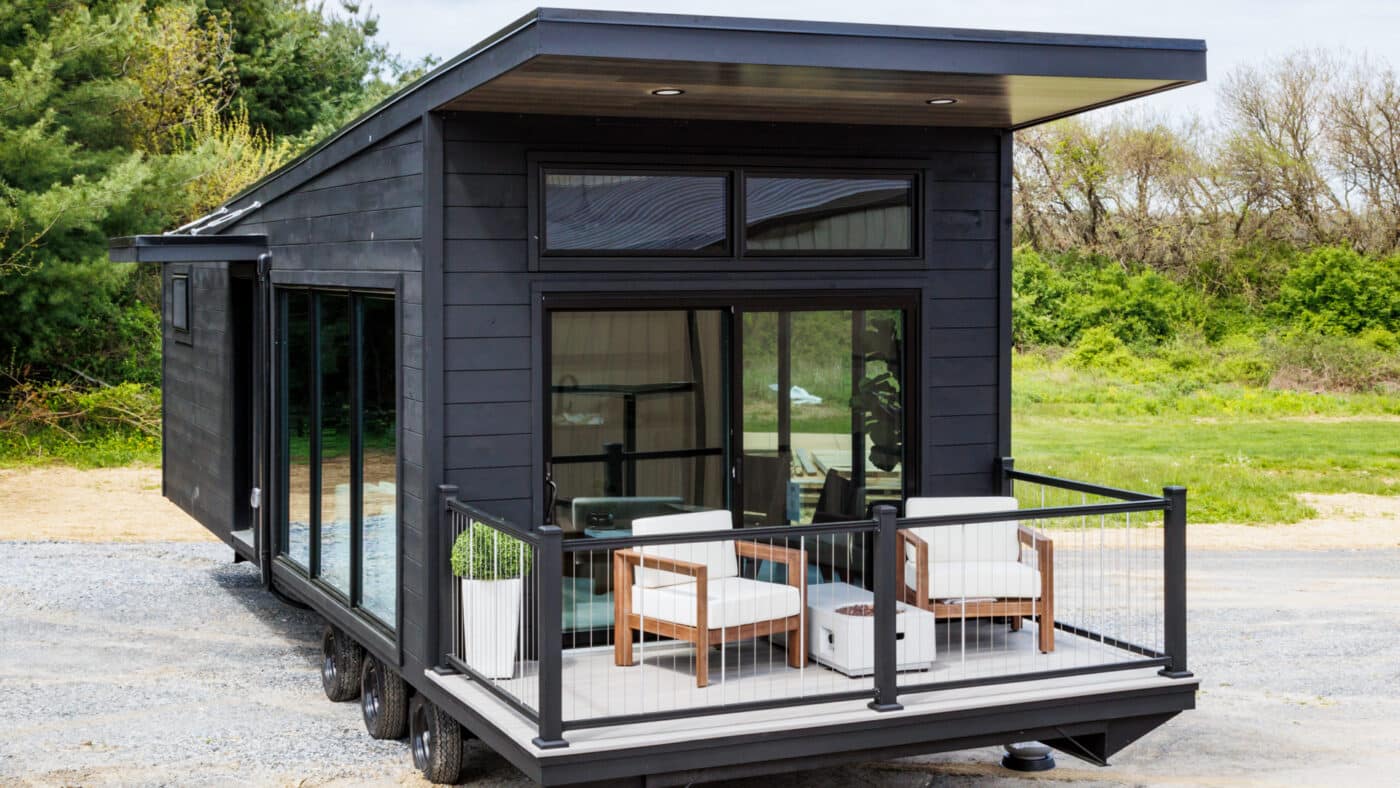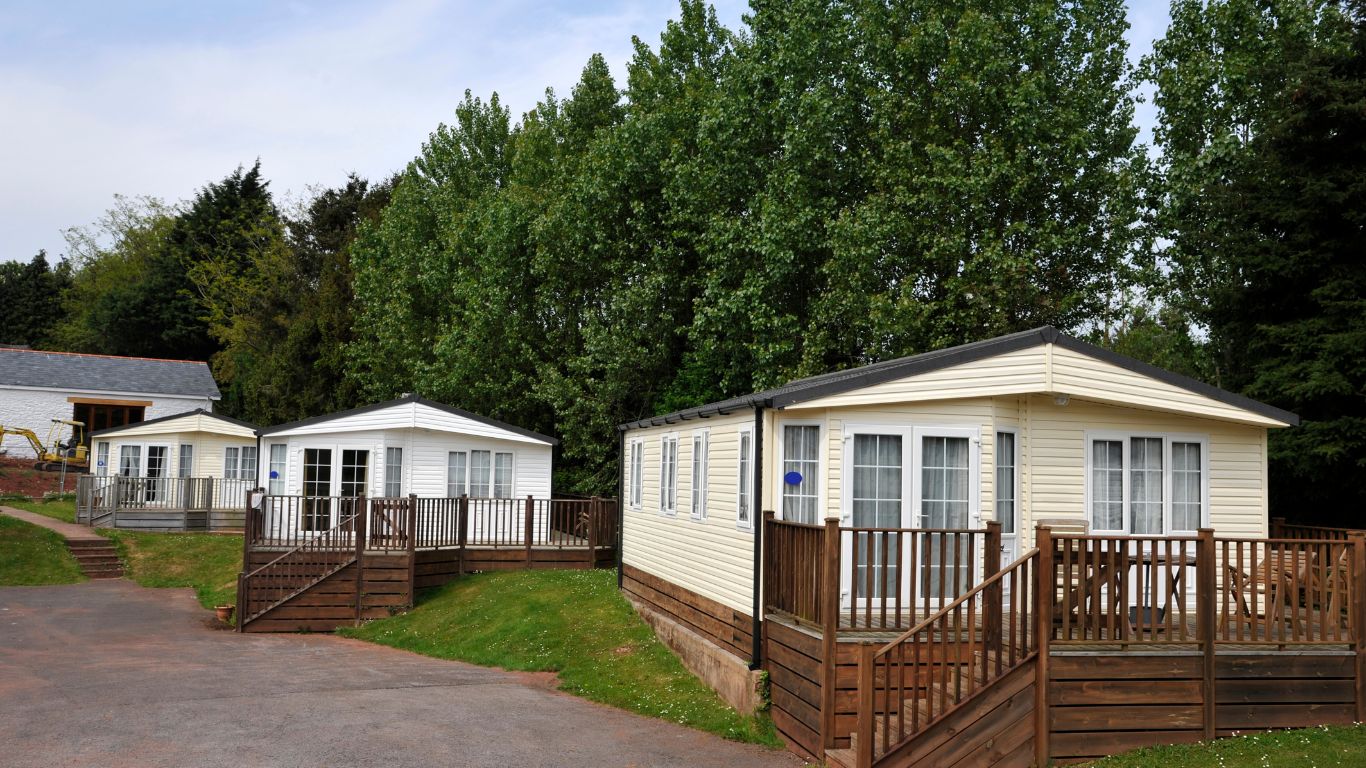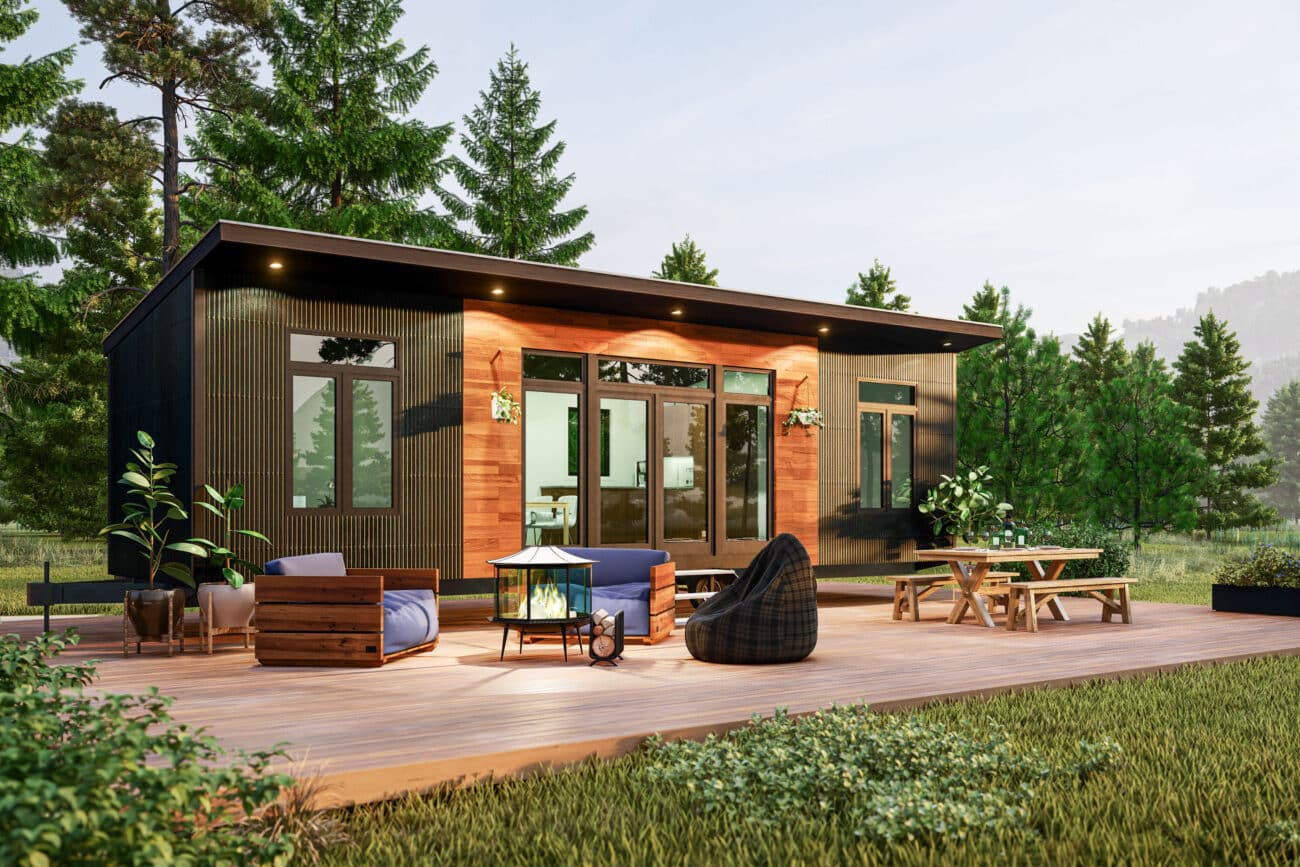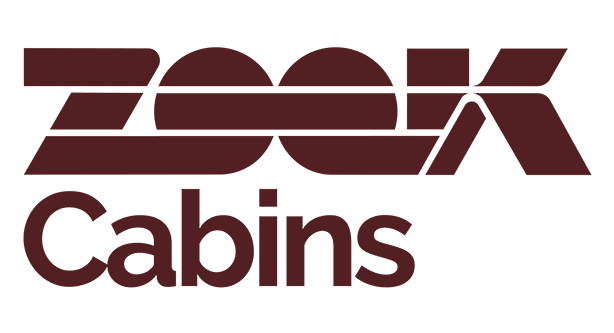
Park Model vs. Mobile Homes: What’s the Difference?
Introduction: Is a Park Model a Mobile Home?
When it comes to recreational housing, the terms park model and mobile home are often used interchangeably, leaving many confused about their actual differences. What is the difference between the two? In this blog post, we will show the distinctions between park models and mobile homes and highlight the unique characteristics that set them apart.
What is the difference between a park model and a regular mobile home?


In a nutshell, the key difference between park models and mobile homes lies in the specific building standards they adhere to. Park Models follow the ANSI A119.5 regulations created for recreational use, while mobile homes comply with HUD standards for manufactured housing. Although both categories fall under the umbrella of manufactured housing, the specific codes allow the manufacturers to build innovative solutions tailored for each.
Park Model RVs: ANSI A119.5
ANSI A119.5 is a standard established by the American National Standards Institute (ANSI) that applies to park-model recreational vehicles. A final ruling by the Housing and Urban Development Department allowed for the exemption of recreational vehicles from HUD regulations. So, park model cabins are legally classified as park model recreational vehicles (PMRV) and do not need to meet HUD requirements (which makes them highly customizable!)
Mobile Homes: HUD
HUD approval refers to the building codes administered by the U.S. Department of Housing and Urban Development (HUD) for manufactured homes. The HUD code ensures that manufactured homes (often referred to as mobile homes) meet specific construction and safety standards. By adhering to the HUD code, manufacturers can provide buyers with homes that are compliant, safe, and built to federal requirements.

Park Model and Mobile Homes: Compared
| Dimensions | Tax | Locations | Regulation | Living | |
| Park Model | 400 sq. ft. Max | Sales Tax (1 time) Taxed like a recreational vehicle | RV Parks Private Land (dependent on municipality) | ANSI A119.5 RV Code | Semi-permanent Usually intended for recreational use |
| Mobile Homes | 400 square feet or greater | Property Tax (dependent on local tax law) | Private Land Mobile Home Parks | HUD (United States Department of Housing and Urban Development) | Full-time occupancy |
Park Model vs. Mobile Homes: Pros and Cons

When considering whether to invest in a park model home or mobile home, you will most certainly weigh the pros and cons. Factors such as individual needs, budget, mobility, and desired lifestyle will affect your decision.
Park Model Homes: Pros
- Customizability: Park models are not under HUD, allowing manufacturers to offer a broad range of interior layouts and exterior styling.
- Lower Cost: Park model cabins are often more affordable than traditional mobile homes.
- Charm: With their smaller size and cozy designs, park models provide a charming, intimate living space perfect for couples or individuals. (For decor and design inspiration for park models, check out our article.)
- Flexibility: Campers can place park model RVs in most RV locations. Park models come equipped with standard water and electric hookups.
- Short-Term investment: Park models have proven to have a high return on a low-cost investment.
Park Model Homes: Cons
- Seasonal Use: Park models are best suited for only a few months out of the year. They often serve as vacation homes or hunting lodges.
- Smaller Living Space: Park models are limited by a maximum of 400 square feet requirement.
- Limited Financing Options: Since park models fall into the recreational vehicle category, the traditional financing for homes does not apply. However, you can finance your Park Model through an RV loan.
Mobile Homes: Pros
- Larger Living Space: Mobile homes typically offer a more spacious design. Starting at a minimum of 400 square feet, manufactured houses provide ample room for comfortable living.
- Permanent Residences: Unlike park models, mobile homes are built to serve as permanent residences, offering long-term housing solutions.
- Year-Round Living: Mobile homes are constructed to withstand year-round weather, from winter to summer.
- Budget-Friendly: Enjoy the advantages of a modern home with ample room without exceeding your budget.
Mobile Homes: Cons
- Higher Cost: Mobile homes generally have higher upfront costs than park models due to their larger size and more permanent style.
- Zoning Restrictions: Dependent on location, mobile homes face zoning restrictions that limit where they can be placed. Check your local zoning laws, as zoning laws will vary from location to location.
- Transport: Mobile homes are limited by the need for transportation. Due to their large size, a professional crew may be required to transport your mobile home safely on the roads and highways.
Which Should I Choose: Park Model or Mobile Home?
Ultimately, deciding between a mobile home and a park model home is up to your personal preference and needs. Both homes offer excellent options for a turn-key housing solution with their own unique advantages. Park model RVs, under ANSI A119.5, provide the freedom of customization and flexibility of being classified as a recreation vehicle. On the other hand, mobile homes, regulated by HUD, adhere to specific construction and safety standards, providing buyers with housing that complies with federal requirements. Mobile homes are likely a preferred choice for those looking for long-term housing options and access to traditional financing. (Interested in mobile homes with the modern themes of Zook’s Park Model cabins and homes? Check our our Modern Mobile Homes page!)
Wrapping It Up…
Hopefully, this article clarifies the differences between park model homes and mobile homes. As seen, both are excellent options and have their unique characteristics. Zook Cabins is here to assist you if you’re ready to explore further or have other questions. We provide high-quality park models (and mobile homes!) in various styles and designs. In addition, our team is available to answer any questions you may have. So, feel free to reach out with any questions as you look for your ideal recreational home!
